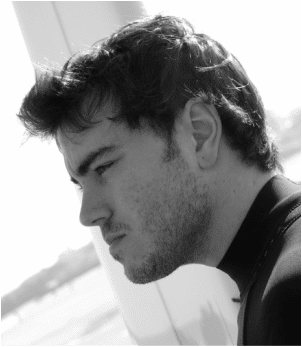Understanding Workplace Collaboration In Coaching In Team Sports

Dr. Edward Hall, PhD is an Assistant Professor in the Department of Sport, Exercise and Rehabilitation at Northumbria University where he is Programme Leader of the MSc Sport Performance and Analysis. Edward’s research, doctoral supervision and education work is driven by a fascination with the relational, (micro) political and emotional complexities of sports work. His scholarship critically explores how networks of social relations influence the thoughts, feelings and (inter) actions of sport professionals, and how sense is made of experiences, relationships, and the self.
As an ethnographer and sport sociologist his aim is to critically examine in-situ the opportunities and challenges associated with professional practice in order toinform and impact workforce development to the benefit of those leading, working and participating in sport and exercise. Externally, Edward is a board member for the Cluster for Research into Coaching (CRIC) and Chair of the 6th International Coaching Conference. Across two decades of work as a mentor and consultant in industry his clients include governing bodies, elite professional sport teams, and some of the world’s leading coaches and coach educators
Today’s conversation revolves around the challenges of collaboration in coaching in team sports. Where Assistant Professor Dr Edward Hall and I discuss research and practical applications. Points that we touch on include coaches’ relationships, preparation and planning in order to foster a culture of trust, loyalty, and accountability.
Key Learning Points:
Winning is hugely important in a high performance context and is a huge driver when designing training sessions and creating key performance indicators.
There is a huge need for coaches to work together collectively to achieve organisational goals, parking their own ego’s and motivations.
Coaches can fear competition, limited job opportunities, job safety and short-term contracts, which go on to lead in Machiavellian behaviours.
Preparation is key to collective work, with a cyclical approach to planning and preparation helpful.
Sport coaches should be careful, prudent, and honest in their deliberations before and after practice to maximize athlete engagement and performance.
Connect with Edward Hall
Edward Hall @ Northumbria University
Connect with David Charlton
Join David @ The Sports Psychology Hub
Instagram, Facebook, Twitter and LinkedIn
To Listen to Podcasts To Help Sport Coaches
Ep248: David Charlton Gets Grilled By Tom Jones
Ep227: David Charlton – How To Improve Football Coaches And Player Relationships
Ep224: Aaron Walsh – How To Help Professional Rugby Players Perform Better Under Pressure
Ep094: Professor Adam Nicholls – How to Develop Mentally Strong Rugby Players
Ep039: John Fletcher – How to Develop Fearless Athletes
Relevant Helpful Resources To Improve Sport Coaches
Self Determination Theory Website with Deci And Ryan
Task-Oriented vs People-Oriented Leadership Styles: Characteristics, Advantages and Disadvantages
Blog – Playing Rugby at Your Best Under Pressure
Blog – 5 Ways to Create a Psychological Safe Sporting Environment
Click the button below to join The Sports Psychology Hub a Facebook group that David hosts to help ambitious athletes, serious sport coaches, sporting parents, sports psychologists and mental game coaches to support each other.
IF YOU ENJOYED TODAY'S SHOW PLEASE SHARE
SUBSCRIBE AND LISTEN ON YOUR FAVOURITE AUDIO PLATFORM
Also, kindly consider taking the 60-seconds it takes to leave an honest review and rating for the podcast on iTunes, they’re extremely helpful when it comes to the ranking of the show and we read every single one of them!

Best Wishes
David Charlton
Online Golf Performance Psychologist who supports many golfers around the world from the USA, United Kingdom, Ireland, United Arab Emirates, South Africa, Australian and New Zealand, using ONLINE Video Conferencing.
Managing Director – Inspiring Sporting Excellence, Host of Demystifying Mental Toughness Podcast and Founder of The Sports Psychology Hub. With over a decades’ experience supporting athletes, coaches, parents and teams to achieve their goals, faster.
T: +44 7734 697769









